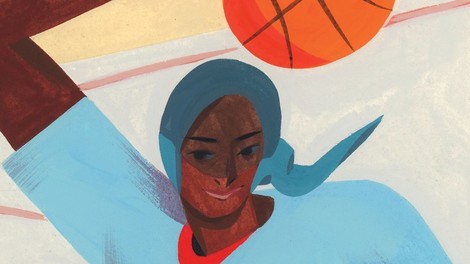Your podcast discovery platform
Curious minds select the most fascinating podcasts from around the world. Discover hand-piqd audio recommendations on your favorite topics.

piqer for: Global finds
Ciku Kimeria is a Kenyan author "Of goats and poisoned oranges" - (https://www.amazon.com/goats-poisoned-oranges-Ciku-Kimeria-ebook/dp/B00HBBWPI6), development consultant, adventurer and travel blogger (www.thekenyanexplorer.com). She writes both fiction and non-fiction focusing on African stories that need telling. She has worked on diverse pieces for various international and local publications including Quartz, Ozy, The East African etc. She has travelled to 45 countries – 16 of them in Africa. 153 countries to go and 63 territories!
"Of goats and poisoned oranges" has been extremely well received in Kenya and beyond. It tells the story of a Kenyan middle aged power couple and their complicated marriage. The novel explores issues of greed, revenge, betrayal and murder. It runs from the 1960s to 2013. It has been described as “Wicked, funny, poignant, wacky, human, a big ball of fun and danger”, “A unique and captivating book”, “Fun and intriguing”, “Impossible to put down once you start reading.”
She recently moved to Dakar, Senegal from Kenya to work on her second novel. She also works at as the Africa Communication Manager at a leading global strategy consulting firm.
She holds a B.S. in Management Science from MIT with minors in Urban Planning and International development studies.
The Somali Girls Who Will Play Basketball At All Costs
The story that we rarely get to hear of religious extremists and terrorists is the pain and torture they inflict on their own communities. For those looking in from the outside, this makes it easier to group people from areas with terrorists as all of the same mind, not taking into account that for most, daily life is a struggle against the oppression their societies face from such elements.
This article on the struggle of young Somali girls to play basketball captures well the innocence of youth, the universal want of people (including children) to live normal lives even under abnormal circumstances. This is then contrasted against the forces that make it impossible for children to be children in so many places in the world.
Aisha’s former teammate Amaal began playing with the encouragement of a friend, a lively, well-liked girl named Faiza. One day, before a game, al-Shabaab militants arrived at Faiza’s house. They took her to an empty lot and tortured her, cutting her body and face with shards of glass, shaved her head, and then left her to die. “It made me really scared for my life,” Amaal recalled. “You put your life in danger in this country because of the thing that you love.”
We follow the story of Aisha and her teammates growing up in Alshabaab-controlled Mogadishu and their passion for basketball — a sport that could get them killed.
More than that, this is a story of sisterhood, male allies for gender equality, strength, determination and chasing ones dreams at a great risk.
“To have a dream and wear pants and a shirt and hold a basketball—there’s nothing stronger to me,” she said. “To think about what I want for myself and to do it.”
